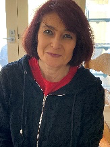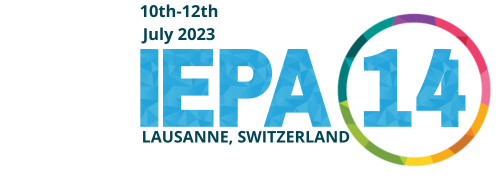Introducing the CAARMS 2023: Comprehensive assessment of at-risk mental states
Presenters: Prof. Alison Yung & Dr. Shona Francey
Date & Time: July 13th , 10am - 1:30pm
Cost: $30USD
The Comprehensive Assessment of At-Risk Mental States (CAARMS) is a semi-structured assessment tool used by mental health professionals and researchers to identify help-seeking young people who are at ultra-high risk (UHR) of developing psychosis. The CAARMS can also be used to track a range of psychopathology over time and to identify the onset of first episode psychosis. A new version of the CAARMS, the CAARMS 2023 has been developed and will be launched at this workshop. The new version includes new scales, anchors, and prompts to assist with assessment of the full range of positive psychotic symptoms.
This half-day workshop is aimed at mental health professionals identifying and working with UHR young people. At the end of the workshop you will be able to:
- Describe the concepts of At-Risk Mental State (ARMS) and Ultra High Risk (UHR), and their theoretical background and underpinnings.
- Outline the latest evidence relating to UHR and the CAARMS instrument.
- Use the latest version of the CAARMS tool, the CAARMS 2023.
You can register for this workshop via the IEPA14 conference registration portal
Workshop Presenters

Deakin University
Professor Alison Yung is Professor of Psychiatry and NHMRC Principal Research Fellow at the Institute for Mental and Physical Health and Clinical Translation (IMPACT), Deakin University and the Centre for Young People’s Mental Health and Orygen, The University of Melbourne, and Emeritus Professor at the University of Manchester. She is President of the IEPA.
Alison has been researching the early stages of psychotic disorder since 1994. She established a specialized research-clinical service, the PACE Clinic, that manages young people at risk of developing a psychotic illness. The instrument she created to assess risk for psychosis, the Comprehensive Assessment of At Risk Mental States (CAARMS) has been translated into 18 languages and is used throughout the world, both for clinical and research purposes. She is also interested in exercise as an intervention for mental illnesses and in improving the physical health of people with mental disorders.
Alison received the Lilly Oration Award for prominence in psychiatric research in 2009, and the Richard J Wyatt Award in 2010, for exceptional contributions to the area of early intervention in psychosis. In 2019 she was awarded the Society for Mental Health Founders Medal, in recognition of a significant contribution to psychiatric research and in 2020 received the Outstanding Translational Research Award from the Schizophrenia International Research Society. In 2014 and 2016 and she was named as one of the “world’s most influential scientific minds” by Thomson Reuters. She has over 400 publications and from 2016 to 2022 she was named as a “Highly Cited Researcher” by Clarivate Analytics.

Orygen
Dr Shona Francey, BSc (HONS), M.Psych, PhD is a clinical psychologist currently working as the Associate Director of the Australian Early Psychosis Program at Orygen, in Melbourne, Australia. Shona has more than 30 years’ experience in public mental health as a clinician, manager and researcher and has worked in the field of early intervention for psychosis since EPPIC was first established in 1992. Shona helped to establish the PACE Clinic, the first detection and treatment program for UHR young people. She completed her PhD examining neuro-cognitive indicators of risk for psychosis in the UHR population. Within EPPIC and the wider Orygen specialist clinical program she has held roles as case manager, group program leader, service lead psychologist and clinical stream leader of both EPPIC and the PACE Clinic. Shona has considerable research experience including clinical research trials investigating the effectiveness of treatments for early psychosis.
